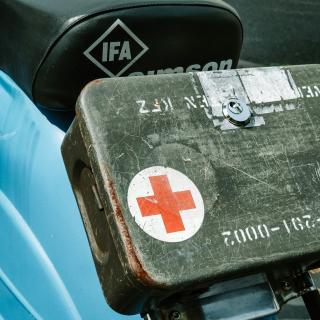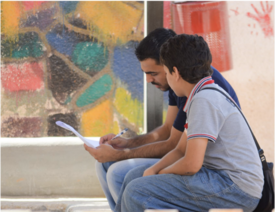Examples of Projects
Energizing partnerships in research-to-policy projects
On the ground, how can research initiatives unfold to make meaningful contributions to real-world practice and real-time policy? This article draws on a case study evaluating an innovative program to alleviate toxic stress, boost resilience, and promote social inclusion among Syrian refugee and Jordanian nonrefugee youth. I describe the kind of project design and community engagement that animates research on stress biology and lived experiences, connecting people with humanitarian practice and policy. I highlight why and how biocultural work generates fluency in multiple forms of evidence to guide mental health interventions, reflecting on ways to anchor research in shared humanity and shared scientific purpose. I clarify what types of added value, pursued during intersectoral collaborations, help achieve plural, sustained, and inclusive contributions. This article shows how “creative relationality” can energize research-to-policy initiatives to bring about transformational change.
Faith-based organizations and social justice for refugees
This project, funded by the British Council Bridging Voices Project with supporting faculty grants awarded by the MacMillan Center, is led by Drs. Karunakara, Lombard, and Panter-Brick at Yale. This project takes place on four continents to ask how faith informs advocacy for refugees and migrants. For more information:
See Bridging Voices
See Policy brief
See the Solidarity and Social Justice publication
Intervention Research with Refugee Youth
This project evaluates the health impacts of a psychosocial intervention for Syrian refugee youth, in partnership with Mercy Corps and the Taghyeer Foundation. It is a mixed-methods, longitudinal study evaluating, with robust methodologies, stress in the mind, the body, and the brain. This research also tracks resilience and social inclusion, and reflects on what makes for successful inter-sectoral, international partnerships. The Fogarty International Center selected our work on Syrian refugees as a case exemplar of humanitarian health research.
The documentary Terror and Hope: The Science of Resilience, made by award-winning filmmaker Ron Bourke, showcases the study conducted by the research team leading this Program at Yale University, in collaboration with humanitarian actors from Mercy Corps, and local academics in Jordan.
See https://pubmed.ncbi.nlm.nih.gov/32582366/
See also https://pubmed.ncbi.nlm.nih.gov/28967980/
See also impacts on cognitive function and learning skills: https://pubmed.ncbi.nlm.nih.gov/31646618/
See commentary: https://pubmed.ncbi.nlm.nih.gov/29667736/
Strengths
This project, undertaken simultaneously in 8 European countries, trains Syrian refugees to provide a mental health intervention called Problem Management+ for implementation with other Syrian refugees. Rachel Farell leads ethnographic research to document the social interactions inherent in scale-up and local implementation in France and the Netherlands.
Living in high-risk humanitarian spaces
This ethnographic study documents the lived experiences and vocational expectations of mid-career humanitarian workers. The study in South Sudan was led by Hannah Shrohmeier.
Humanitarianism and Health
We reflect on the field of humanitarianism, and specifically, how research contributes to practice and policy.
See book on Medical Humanitarianism https://www.upenn.edu/pennpress/book/15407.html
See also articles https://pubmed.ncbi.nlm.nih.gov/25345372/

